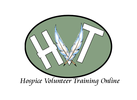LEXINGTON, Ky. (Nov. 30, 2011) — A study led by the University of Kentucky researcher Elaine Wittenberg-Lyles found that hospice family caregivers are "second order patients" themselves and require their own unique care needs.
The study, published in a recent issue of Qualitative Health Research, assessed the individual stressors that caregivers experience. The researchers recorded discussions between hospice caregivers and the intervention team. The caregivers were asked to identify and describe the most pressing problems or concerns they faced.
The study enrolled hospice caregivers who were 18 years of age or older and who did not have functional hearing loss, had mild to no cognitive impairment, and had at least a sixth grade education. In addition, all participants had to have access to a standard phone line. In total, the team collected discussions from 81 participants. The study was funded by the National Institute for Nursing Research.
Using a theoretical framework called Assessing Caregivers for Team interventions (ACT), the researchers coded participants' responses in one of three categories: primary stressors, which included talk that related to the performance of caregiving tasks; secondary stressors, talk about the personal impact of performing caregiving tasks; and intrapsychic stressors, talk about their thoughts, feelings and awareness of the caregiving role.
The ACT framework has been proposed as a way to understand caregiver strain and develop customized caregiver interventions to positively affect the caregiving experience and improve outcomes. The goal of the study was to describe the variances among stressors, targeting specific concerns for caregivers.
Wittenberg-Lyles, who holds a joint appointment in the UK College of Communications and the UK Markey Cancer Center, says the study further proved that caregivers are like patients themselves and should be routinely assessed for these stressors so that interventionists may help them with personalized resources and coping strategies.
"It doesn't matter how well educated you are," said Wittenberg-Lyles. "When someone you love is dying and you are in a position to care for them at home, your home turns into a hospital room and key decisions need to be made hourly. Clinicians should assume that anyone going through the stress and chaos of caring for a terminally ill family member has low health literacy and high needs for education and support."
Hospice is provided to patients who have an estimated life expectancy of six months or less. About 69 percent of hospice patients in the U.S. receive care at home from a family caregiver.
In Wittenberg-Lyles' study, nearly one-third of the hospice patients had a cancer diagnosis, and 21 percent had a primary or secondary diagnosis of Alzheimer's disease or dementia. Nearly 43 percent of caregivers were adult children of the patient, and roughly one-third were spouses/partners. In addition, an overwhelming majority of caregivers were women (79 percent).
Source: University of Kentucky
Wednesday, November 30, 2011
Family Caregivers are "Second Order Patients"
Sunday, September 18, 2011
Hospice for Heroes Motorcycle Run
Go online at http://rabuncountyveterans.com to donate in honor or memory of a veteran, or sponsor by joining us on the 100 mile motorcycle ride on October 15th, 2011 at the Clayton City Hall parking lot at 10 a.m. All registered riders/passengers will get a free lunch and t-shirt and a magnificent tour of the Northeast Georgia mountains during beautiful leaf season.
Call the Rabun County Chamber of Commerce for more information at 706-782-4812
Friday, August 26, 2011
Tuesday, August 9, 2011
What's not to "Like" about a dream?
Help raise awareness of hospice services so those in need benefit earlier from great care that focuses on living.
Go to the Regency Hospice - Hiawassee Face Book page and click on "Like".
Easy, free, and helpful. You can't beat that combination!
I think after you see the pictures of the dream come true for an 84 year old lady, you can't help but "Like" this page.
Sunday, August 7, 2011
Do you really think I keep doing this because I want to be depressed? Give Me A Break!
Great initiative by volunteer coordinator to enhance her volunteers' experiences. I love the quote,
“Do you really think I would visit dying people week after week for years so I could be depressed? Give me a break.”
Visit the blog at: http://janshospicevolunteers.wordpress.com/
Saturday, August 6, 2011
Healing Grief | Personal and Professional Insights from Robert A. Neimeyer, PhD
Thanks to @jen_c_taylor for opening the door to this video through her website: http://www.livinglifedyingdeath.com/
Tuesday, July 26, 2011
Hospice Insight from Volunteer Trainees
There have been times when the hospice volunteer training program took a back seat to my other responsibilities. I sat down tonight to grade the final essays of some recent trainees and the most amazing thing happened.
The tiredness of the day took a turn. I was almost in tears just trying to decide on what to cook for dinner and then I read the essays.
"I wish I had know all this when my mother was dying"
"I will be a better communicator"
"I am a nurse but also a volunteer"
"I am a street preacher and want to do as much as I can to help others".
Service, Service, Service!
All around my are people doing everything they can to learn about hospice care, enthusiastically wanting to be of service....and I complain of being tired???
I developed the course with many intentions but the results have surprised me many times over. I am continually blessed to read the heart felt statements and authenticity of intention that pours from those who take the course, digest the meaning and deliver a true desire to serve.
I hope I can grow up to take the right path just as they have done. I am truly blessed.








